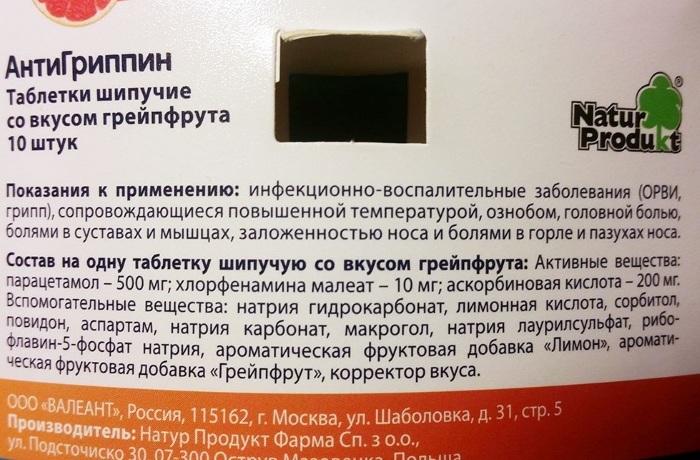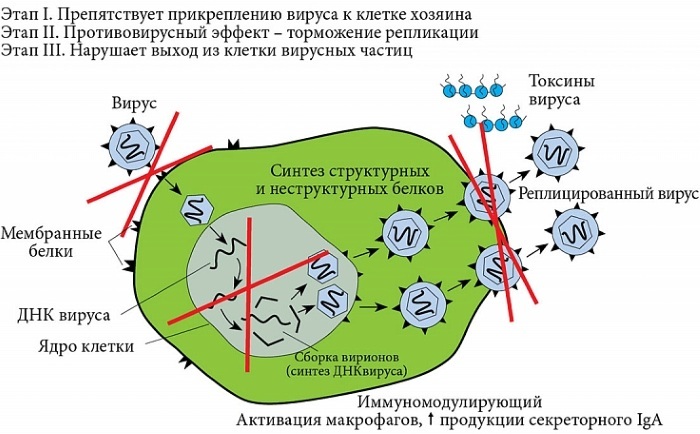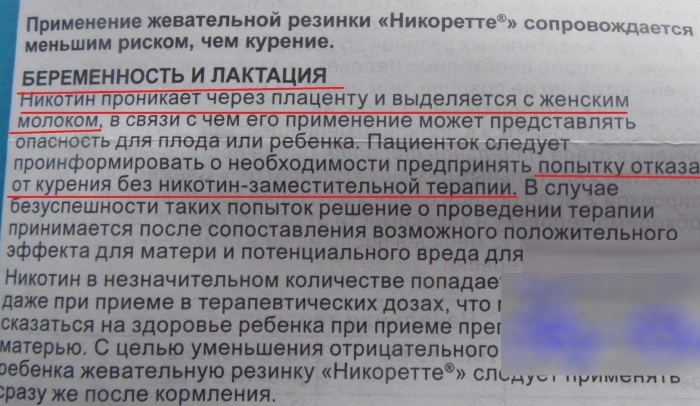Calcium carbonate - mineral additive, used in case of a lack of this important macronutrient in the body, which occurs for any reason. Calcium is essential for building healthy bone tissue, it supports heart function, participates in the transmission of nerve signals, maintains electrolyte balance and normal blood coagulation.
In addition, this substance belongs to antacids - drugs that can neutralize the acidity of gastric juice.
Record content:
- 1 Indications for use
- 2 Compound
- 3 In what form is it produced
- 4 Pharmacodynamics
- 5 Pharmacokinetics
-
6 Application
- 6.1 For children under 18
- 6.2 For adults
- 6.3 For pregnant
- 6.4 For the elderly
- 7 Contraindications
- 8 Overdose
- 9 Side effects
- 10 Drug interactions
- 11 Storage conditions and periods
- 12 Conditions of dispensing from pharmacies
-
13 Analogs
- 13.1 Rennie
- 13.2 Tams
- 13.3 Calcium-D3 Nycomed
- 13.4 Vitrum Osteomag
- 14 Calcium Carbonate Video
Indications for use
Calcium carbonate has an immediate antacid effect when it enters the stomach, reacting with hydrochloric acid.
The neutralization of gastric juice provides quick relief from the following gastrointestinal diseases:
- ulcerative lesions of the stomach or duodenum;
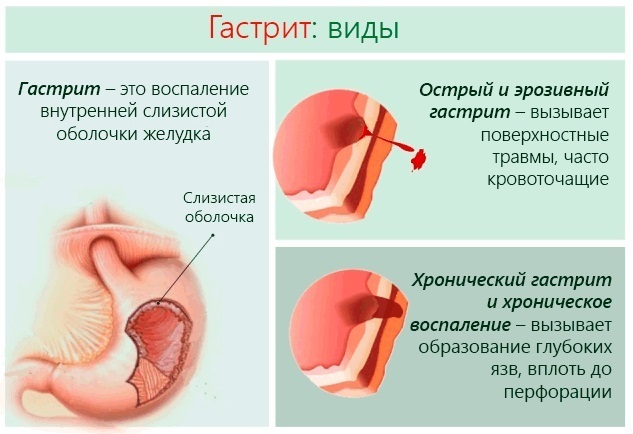
- hyperacid gastritis (acute and chronic);
- erosion of the gastrointestinal mucosa;
- exacerbation of duodenitis;
- reflux esophagitis;
- pain and heaviness in the epigastrium;
- heartburn of any origin.
As a mineral supplement, the intake of calcium carbonate is indicated in the following conditions:
- osteomalacia;
- osteoporosis;
- caries (prevention or treatment);
- allergic reactions (as part of complex therapy);
- high body need for calcium (period of active growth, pregnancy, lactation).
Calcium carbonate is a way to compensate for the lack of an element that occurs when the absorption of calcium decreases or its increased excretion. The supplement is essential for dialysis patients taking glucocorticoids and suffering from bone changes due to severe kidney disease.
Compound
Calcium carbonate (Calcii carbonas) is an inorganic compound, chemically it is a salt of carbonic acid. In nature, the mineral forms the basis of limestone, chalk deposits, dolomite, marble.
The food and cosmetic industry uses calcium carbonate as a natural food coloring under the E-170 label. For medicinal purposes, the substance can be obtained from bone meal, oyster shells, or egg shells.
Calcium carbonate (pure edible chalk) is a white powder or small crystals without a specific odor and pronounced taste, insoluble in water and alcohol. A pure medical product contains 40% calcium and has no additional ingredients.
Function of calcium ions in the body:
- Neuromuscular - participation in the contraction of the myocardium, transmission of nerve signals, movement of smooth muscles of the digestive system.
- Enzymatic - providing blood coagulation processes.
- Structural - as a building material for building and renewing bones and teeth.
- Signal - the transfer of information within and between cells.
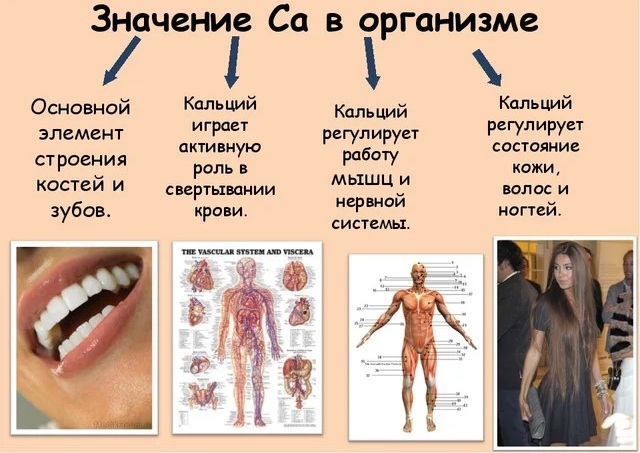
Calcium participates in a variety of metabolic reactions, regulates cellular energy metabolism and serves as a catalyst for some reactions.
In what form is it produced
The drug is available in the form of pure powder, tablets, and chewable lozenges with various flavors.
Types of dietary supplements and medicinal products of calcium carbonate:
| Release form | Features of the composition and packaging | average price |
| Pills | 500 mg (calcium + magnesium) in polymer cans (100 pcs.) With added vitamins | RUB 165 for 1 package |
| Powder | In plastic bags (18 kg), plastic cans of various capacities or foil bags with a dosage of 100 and 150 g. | From 200 rubles per 1 kg |
| Chewable tablets | Complexes with the addition of magnesium, zinc, vitamins (in particular, C or D) and flavoring additives | Starting from 440 rub. per pack with 120 tablets |
The mineral is included in various multivitamin complexes. There is a soluble effervescent form of calcium carbonate in the form of tablets with the addition of vitamins C, K, B6, D. The cost of soluble tablets is about 400 rubles.
Pharmacodynamics
The antacid effect of calcium carbonate is noted immediately after ingestion of the drug. By neutralizing the hydrochloric acid of gastric juice, the substance eliminates heartburn, reduces bloating and bubbling in the intestines.
The mineral has no effect on the concentration of hydrochloric acid. The antiulcer effect is also associated with a decrease in acidity, which reduces pain and promotes healing of the lesions.
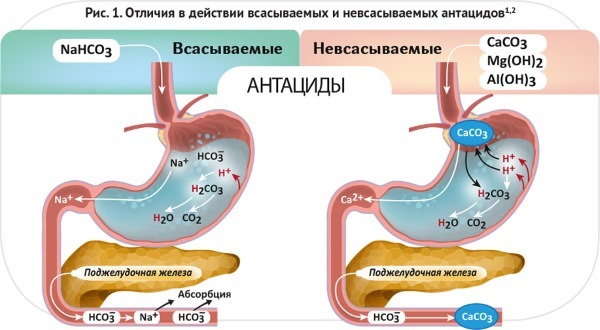
Calcium carbonate is a fast-acting symptomatic remedy. Its action continues for several hours, but then the secretion of gastric juice is restored and enhanced.
The supplement can also be used to replenish calcium deficiencies. Additional intake of the mineral stimulates the renewal of bone and teeth tissues, inhibits bone degradation.
Pharmacokinetics
Under normal conditions, a healthy small intestine will absorb 15% of calcium carbonate. This figure increases significantly in the presence of vitamin D, under the influence of parathyroid hormone, with a balanced diet. The absorption of the macronutrient increases with its shortage due to the lack of dairy products in the diet.
In plasma, almost half of the absorbed mineral is in a complex with proteins. With the blood flow, calcium ions are delivered to all organs and tissues. 99% of the substance is spent on building bone tissue, the rest is in plasma, cells and intercellular substance.
Calcium excretion is 80% through the intestines, almost 20% in the urine, trace concentrations are eliminated along with sweat.
The maximum absorption of calcium in the intestine is achieved at single doses of no more than 500 mg. When prescribing large daily doses, it is advisable to divide the entire amount into several doses. The bioavailability of the mineral also depends on the level of intestinal acidity and nutritional characteristics.
Application
To replenish the body's daily need for calcium, different categories of patients require the appointment of different daily doses. The amount of the drug is calculated individually. So with a dairy-free diet, a micronutrient deficiency can be observed, replenished by the addition of 500 to 2000 mg of calcium carbonate.
Powder or tablets are taken with food or after meals. The drug is washed down with plain (non-carbonated) water or juice. Some foods containing high concentrations of oxalic acid block the adsorption of calcium ions.
Do not combine the supplement with sorrel, spinach, beets, cabbage, rhubarb, nuts, or legumes. This combination provokes calcium binding and the deposition of oxalate stones in the kidneys and bladder.
For better absorption of the mineral supplement, food should be saturated with proteins, magnesium and phosphorus. The best combination is fish, dairy, butter, eggs, herbs, whole grain flour products. Calcium carbonate is poorly combined with both too fatty and lean foods.
For children under 18
The hypoallergenicity of the drug allows it to be used from an early age. The restriction for children under 3 years old is associated with the ability to swallow tablet forms. In pediatrics, calcium carbonate preparations should be used strictly according to indications.
With a normal diet with the presence of dairy products, uncontrolled additional intake of the drug can provoke lactic-alkaline syndrome (the effect of calcium overdose).
If it is necessary to treat and prevent rickets or caries in children, as well as during intensive growth of the skeleton, the supplement is prescribed in individually calculated doses from 300 to 600 mg per day. After reaching the age of 14, adolescents are prescribed the drug under general conditions.
For adults
In addition to the listed indications, the macronutrient is used to recover from injuries and fractures, with the addition of magnesium helps to increase the endurance of skeletal muscles and myocardium during prolonged physical loads. But most often the drug is used as a fast-acting antacid.
Calcium carbonate is a safe emergency stomach remedy for occasional heartburn for the following reasons:
- intoxication with ethanol;
- nicotine overdose;
- adverse drug reaction;
- abuse of coffee;
- violation of the diet.
The tablets are swallowed without chewing, the powder is mixed with water and drunk. The usual dose of the drug as an emergency antacid is 500 or 1000 mg (1-2 tablets). If additional intake of calcium into the body is necessary, the dose is calculated based on the indications. Usually prescribed 1000 mg per day with a body weight of up to 80 kg. The duration of the course of treatment is selected individually.
For pregnant
The high need for calcium is one of the important features of the gestation period. Additional intake of the mineral is also necessary during lactation.
For women at this time, the drug is prescribed when there is an insufficient presence of dairy products in the diet with symptoms of a lack of a macronutrient. It is allowed to use calcium carbonate as a natural antacid for toxicosis, reflux, heartburn.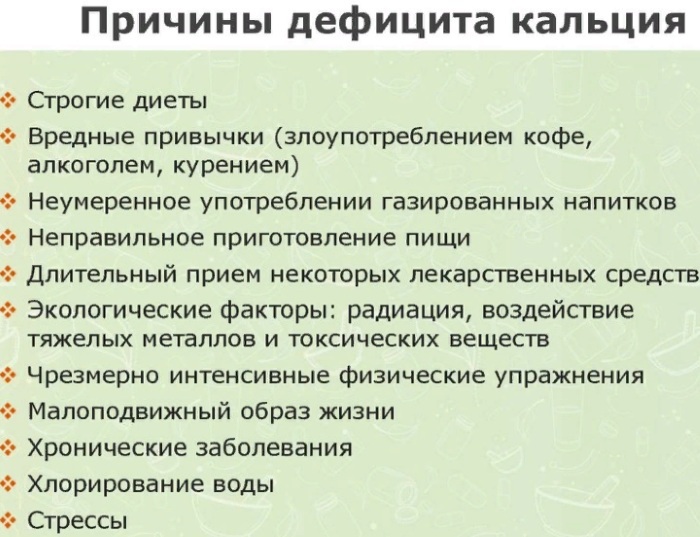
The teratogenic properties of the drug have not been studied, no negative reviews have been reported on the use of white chalk during pregnancy or lactation. The only side effect of the remedy is the occurrence of constipation with prolonged use.
For the elderly
An excess of calcium can be more dangerous than a lack of it at any age. Especially carefully prescribe the use of the drug in old age, when the normal processes of the gastrointestinal tract, the mechanisms of filtration and the removal of excess substances are disrupted. Therefore, older patients need to consult with their doctor and take into account all comorbidities to take the supplement.
Indications for supplemental calcium intake in patients over 50 years of age:
- prevention and compensation of osteoporosis;
- hypertension, hypotension, unstable blood pressure indicators;
- pathology of the thyroid gland with leaching of calcium from the body.
Loss of calcium from bone tissue occurs in postmenopausal women, with arthritis, cancer, and kidney damage requiring dialysis. The prophylactic dose in the absence of serious pathologies is from 600 to 1200 mg per day. Chronic and acute conditions require medical supervision and an individual calculation of the treatment course.
Contraindications
Strict restrictions on the intake of calcium carbonate are the following diseases:
- individual intolerance to the drug;
- hypercalcemia, hypercalciuria;
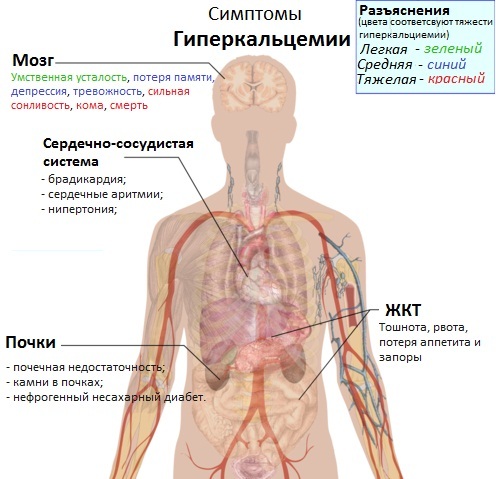
- bone metastasis;
- myeloma, sarcoidosis;
- overdose of vitamin D;
- severe stages of atherosclerosis;
- renal failure, nephrourolithiasis;
- phenylketonuria;
- danger of thrombosis.
Powder and tablets are used with caution with a tendency to constipation, low blood pressure, insufficient gastric secretion.
Overdose
Excessive doses of calcium can be obtained not only from an incorrectly calculated course of treatment. An overdose can be caused by taking the supplement against the background of normal consumption of the mineral from foods.
In any case, the following symptoms are signs of an excess of the mineral:
- headache;
- intense thirst;
- lack of appetite, up to a complete refusal to eat;
- problems with bowel movements;
- myalgia and joint pain;
- weakness, lethargy, apathy.
Such symptoms indicate the development of hypercalcemia, called lactic-alkaline syndrome. The condition occurs when more than 2,000 mg of calcium is ingested in 24 hours. With prolonged overdose, the condition develops into alkalosis (acidification of the blood) - a life-threatening condition.
At the first suspicion of an overdose, gastric lavage, sorbent intake, symptomatic treatment are prescribed. The use of calcium carbonate is discontinued until medical advice.
Side effects
A rare side effect when using calcium carbonate is called an allergic rash, itchy skin. The effects are transient and disappear after discontinuation of the drug. More often, when taking mineral supplements, an increase in thirst, difficulty with defecation is noted. The usual consequence of taking an antacid is a secondary increase in secretion several hours after administration.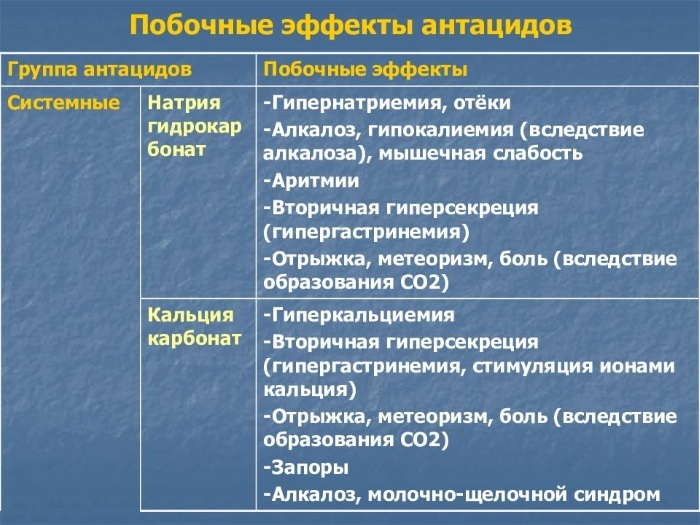
Calcium carbonate, without impurities and additives, is a neutral, safe substance in preventive doses, which very rarely causes individual reactions opposite to those expected: pain in the epigastric region, diarrhea, flatulence.
Drug interactions
When taken orally simultaneously with calcium carbonate, it is possible to inhibit absorption and reduce the effectiveness of drugs.
When combined in one course, such reactions with drugs are observed:
- with antibiotics of the tetracycline series - a decrease in their effectiveness;
- with thiazide diuretics - hypercalcemia and alkalosis;
- with indomethacin - a decrease in its adsorption;
- with levothyroxine - a decrease in effectiveness;
- with quinidine - an increase in the toxic effect on the kidneys;
- with salicylates (aspirin, pepto-bismol, others) - a decrease in serum concentration and accelerated excretion by the kidneys.
Laxatives, diuretics, anticonvulsants, steroids reduce the bioavailability of calcium carbonate. The antagonists of the mineral in the body are calcitonin, gallium nitrate, bisphosphonates. These drugs can be used to treat overdose.
Storage conditions and periods
Powdered medical chalk is stored in its original packaging, or packaged in containers made of neutral material with a tight seal. Leave the substance in a dry place out of the reach of children. The optimum storage temperature for edible chalk is +25 ° C; refrigeration is not required.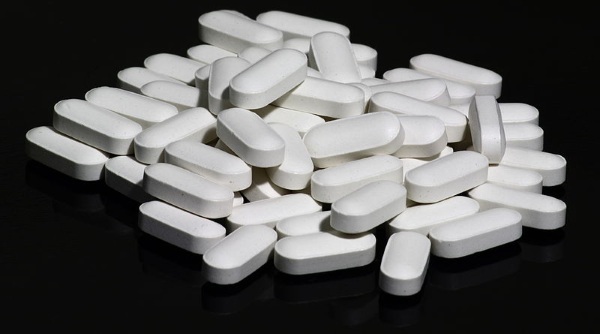
Calcium carbonate powder retains its properties for up to 5 years. Tablet preparations are stored according to the instructions, in accordance with the shelf life of the most perishable ingredient.
Conditions of dispensing from pharmacies
Calcium carbonate is a mineral additive. It is available for purchase in pharmacies and online stores without a prescription. The quality and degree of purification of the preparation is guaranteed only from certified manufacturers.
Analogs
Direct analogs of calcium carbonate in terms of the active substance are tablet forms in which the substance is supplemented only auxiliary neutral ingredients (starch, povidone, cellulose and others) to shape and improve solubility.
These funds include:
- Vitacalcin;
- Scoralight;
- Upsavit Calcium;
- Additive calcium;
The price for these analogs starts from 40 and does not exceed 70 rubles. per packing.
Tablet preparations based on calcium carbonate with accompanying mineral supplements or vitamins have a similar effect with additional properties. The most popular combinations are magnesium products.
Rennie
Combined preparation based on calcium and magnesium carbonate with flavoring and plasticizing additives. Rennie's chewable tablets are most commonly used for heartburn, belching, and acid reflux. Thanks to its highly soluble composition, the agent takes 3 minutes to work.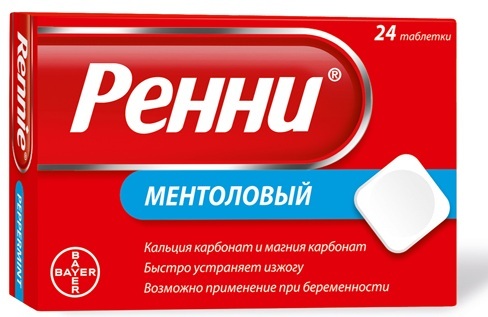
Rennie is prescribed for both symptomatic therapy and long-term treatment. The degree of absorption of calcium and magnesium from the drug does not exceed 10 and 20%, respectively. Therefore, in acute conditions, up to 10 tablets per day are allowed.
The drug is approved for use during pregnancy to relieve symptoms of toxicosis and dyspeptic symptoms. Due to the small adsorption, Rennie cannot be considered as a remedy for replenishing the lack of calcium in the body. The cost of a pack of Rennie's chewable tablets (12 pcs.) Does not exceed 170 rubles.
Tams
Chewable mint lozenges based on two carbonates: magnesium and calcium. They have the same indications for use as other analogues (for example, Rennie), but due to the presence of sucrose, they are not prescribed to diabetics. The tablets are taken orally, dissolving, 2 pieces one after the other. It is allowed to repeat the reception after 2 hours. The maximum amount of the drug in 24 hours is 16 lozenges.
The drug is recommended for symptomatic treatment and cannot be prescribed for long-term therapy. The drug produced in the UK costs about 950 rubles. per pack with 60 tablets.
Calcium-D3 Nycomed
Calcium carbonate with calciferol (vitamin D-3) is especially well absorbed and compensates for the lack of several essential elements in the body at once. This property requires especially careful observance of the recommended standards due to the danger of overdose.
Features of the drug use:
- children over 3 years of age are prescribed the drug on the recommendation of a pediatrician on an individual basis;
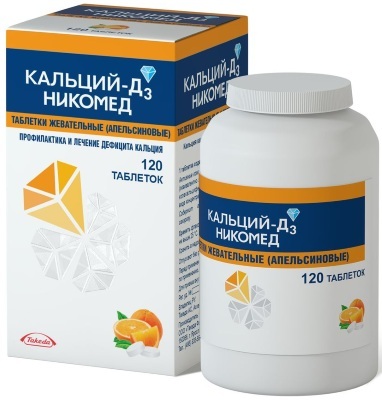
- from 5 to 12 years - no more than 1 time a day, 1-2 tablets, according to indications;
- after reaching the age of 12, an adult prophylactic dose can be used - 1 tablet up to 2 times a day;
- adults with a large body weight or for special indications are allowed to increase the frequency of administration up to 3 times 1 tablet each;
- the duration of therapy with an established lack of calcium, osteoporosis - at least 4 weeks;
- do not use the drug for chronic renal diseases.
The tool is used mainly as an additional source of calcium and magnesium. The antacid effect of the drug is secondary. Other analogues of the product with calciferol: Ideos, Revital, Natekal D3.
The cost of packing of chewable tablets Calcium-D3 Nycomed (60 pcs.) With different tastes starts from 400 rubles.
Vitrum Osteomag
The drug combines calcium carbonate, magnesium, calciferol and several macro- and microelements that contribute to the health and restoration of bone tissue: copper, manganese, zinc, boron. The supplement is especially indicated for the elderly with developing osteoporosis, fragility of bones.
According to strict indications, it is possible to prescribe the drug from the age of 12. The maximum daily dose for any age is 2 tablets. The complex supplement Vitrum Osteomag packaged in 30 tablets is available at a price of 300-350 rubles.
Calcium carbonate is a part of many mineral and vitamin complexes, designed for different ages, selected according to indications.
It is a safe mineral supplement that helps make up for an essential nutrient deficiency, but when unjustified use causes severe hypercalcemia, disrupting the work of all organism. Therefore, you should consult a specialist before taking it.
Calcium Carbonate Video
About calcium carbonate:

